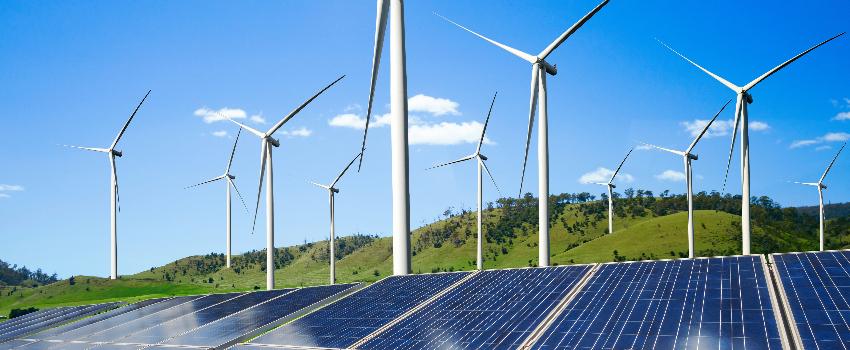
The New Energy World Order
MODERN lifestyle would not have evolved without the widespread use of fossil fuels over the past century. The burning of coal, oil, and gas increased overall global prosperity, but their unabated greenhouse gas emissions were hardly priced in the economic growth model. And as mankind grapples with climate change in the so-called Anthropocene Age, the energy sector is decarbonizing and decentralizing in a fundamental shift.
There are many who still believe that the climate debate is deliberately rigged by the 'liberal wokerati' to project a doomsday impact of a global average temperature exceeding 1.5 degrees Celsius above pre-industrial levels (we have already hit 1.1°C). However, the energy transition is not being spearheaded by starry-eyed, tree-hugging environmentalists but by hard-core private capital. And despite the recent political pushback against ESG financing and reducing carbon footprint as a form of virtue signaling, the global clean energy space continues to attract tons of institutional capital because it now makes pure economic sense to go 'long' on clean energy vis-à-vis hydrocarbons.
These billions of dollars are being put to work across the value chain, including in wind and solar power as Chinese 'economies of scale' manufacturing drives down installation costs. Although Covid and recent supply chain constraints have marginally arrested the declining cost curve, these mainstream green asset classes are still cheaper than thermal power even without subsidies and carbon taxes. But because of their intermittent nature (the sun and wind do not always shine and blow), a reliable base load power system is also attracting investment in long-duration storage solutions, such as grid-connected batteries and green hydrogen. Research on various battery chemistries and electrolyser technologies is being boosted by massive amount of cleantech financing, and it would be bold to bet against human ingenuity figuring out a few technological breakthroughs, that are also commercially viable and scalable, sooner than later.
Another hot investment
theme is demand-side management to connect various consumer-distributed energy
resources (such as rooftop solar PV, home and electric vehicle batteries) to
the distribution grid. A bi-directional and AI-driven digitized relationship
between multiple sellers and buyers of electrons not only reduces peak load but
also the quantum of investment required to upgrade the transmission
infrastructure as the energy sector further 'electrifies'. There is also now
renewed focus in the West on developing a 'circular economy' to cut down on waste
and improving energy efficiency.
The energy transition is not being spearheaded by starry-eyed, tree-hugging environmentalists but by hard-core private capital.
The increasing adoption of
electric passenger vehicles (primarily in
Likewise, other 'hard to
abate' sectors, such as steel and cement, may partially be retrofitted to burn
green hydrogen instead of coal for process heat. Gas-fired boilers are
increasingly being replaced in
Geopolitics remains a key
factor in the energy world, and increasingly so after the Russian invasion of
While
Who will dominate the emerging new energy world order remains to be seen as the fossil fuel industry pushes for curbing emissions via carbon capture and storage technologies, and against actual 'phasing down' of hydrocarbons to achieve the Paris Agreement goals by mid-century. Natural gas, including LNG, is likely to remain a key 'transition fuel' for the foreseeable future, albeit with increasingly stringent regulations on methane leakage. Traditional oil and gas companies that are not least cost producers, or do not stick to their core competencies, will be pushed aside by energy upstarts just like Tesla, Amazon, and Netflix upstaged the incumbents in their respective industries.
The availability and cost
of climate finance required to achieve a 'just' energy transition for
developing nations is a key agenda item at this year's
Source: Dawn
Comments
Leave a comment
Your name and email address will not be stored in the browser and your email will not be published.